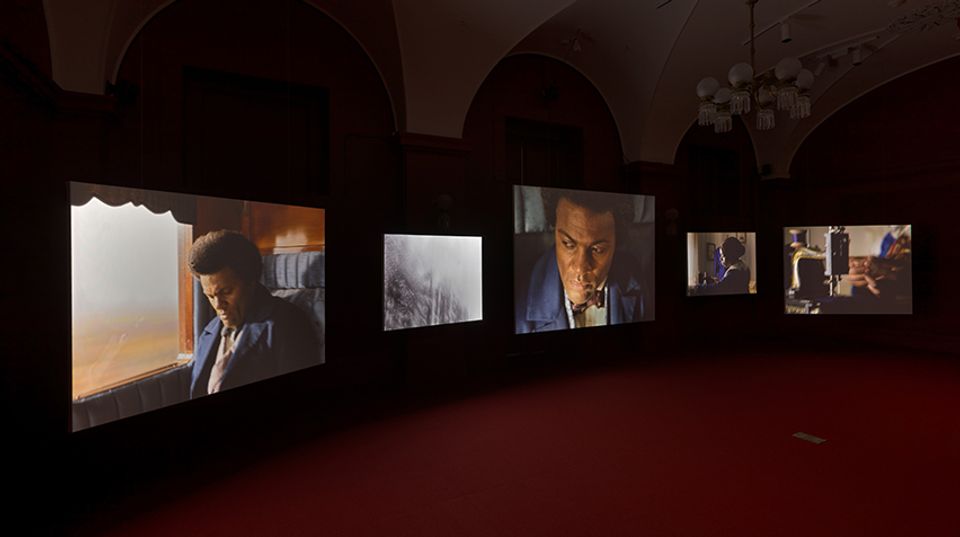
Victoria Lichtendorf joined American Art in 2009 as the Clarice Smith Education Manager. Working with Clarice Smith Education team member, Adrienne Gayoso, she has the great pleasure of collaborating with an outstanding group of teachers from across the United States during summer institutes and throughout the school year. Victoria tells us about teacher Steve Rayburn who is using American art to teach in his English class.
On a recent trip to Rayburn's classroom at the University of Illinois Laboratory School in Urbana, Illinois, we found Rayburn's class of combined seventh and eighth graders immersed in a close reading of Romeo and Juliet. We were astounded when two of his students gleefully took center stage at the front of the classroom to sling Elizabethan insults at one another. His students have greeted the inclusion of American art in their English studies with equal enthusiasm.English teacher Steve Rayburn, an educator for thirty years, is constantly on the lookout for ways to invigorate his teaching. This ongoing quest brought him to the Smithsonian American Art Museum to attend a Clarice Smith National Teacher Institute last summer. While becoming "infatuated" with John Singer Sargent's portrait of Elizabeth Winthrop Chanler on the heels of re-reading Edith Wharton's House of Mirth, Rayburn also fell for American Art's collection as a whole.
"I came to the Institute hoping to find out more about works of art I could use in a class on the 19th Century American Novel," notes Rayburn, "but, I left with a wealth of ideas to use in my writing classes. The way we make meaning when we look at art and the way we construct a well written paragraph or essay dovetail amazingly well. The incredible moment for me was when I started using art, such as Richard Norris Brooke's A Dog Swap, in my English classroom and those students who had never spoken up before suddenly jockeyed for a chance to talk. I was no longer the 'Sage on the Stage,' and they embraced the opportunity to be on equal footing with me as we explored works of art together.
"I have learned how to look at art differently, to the point that I now have a growing interest in more contemporary art that used to leave me cold. I think it is always good for a teacher to be reacquainted with grasping some concept they have avoided. Our students do it all the time!"
Find out more about our upcoming 2012 Clarice Smith National Teacher Institutes. The application deadline is April 2!


















